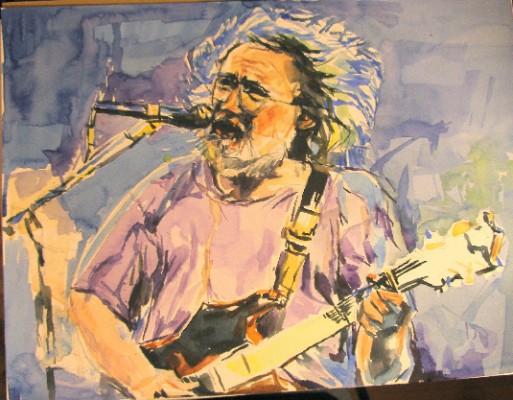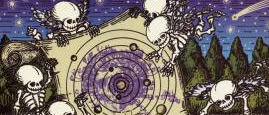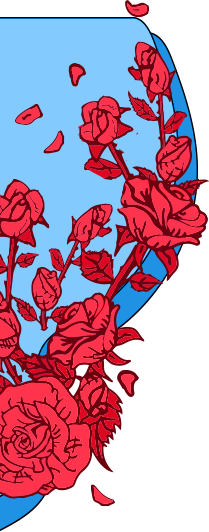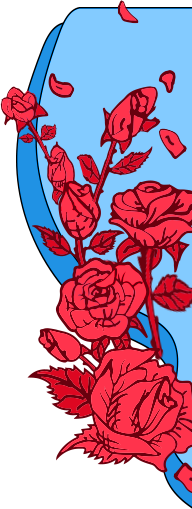Confirm copyright
Off
fan_photo_Image

Fan Photo categories
dead comment
JG Lives. Indeed.
Perhaps one the GD's greatest legacies to succeeding generations is a gravitational pull toward discovery of like-minded musicians from the "primitive" era in which the counterculture's unhingement from conventional social mores found mainstream musical expression in an extemporaneous exploration of sonic landscapes and themes previously unknown to the art outside of the largely African-American sphere of jazz.
The visceral draw of live music is a constant; thus, it's little surprise that Phish, Moe, Umphrey's, String Cheese, RRE, DSO, and even partial reincarnations like Furthur and PL&F have experienced considerable commercial patronage in the wake of '95.
Yet, this myopic focus on the Dead and their progeny has seemingly relegated a coterie of formidable and (originally) contemporary improvisational talents to marginalized or negligible recognition.
Because I was born about 15 years after the Rise and Fall of The 60s, my discovery of music from that era has been acutely retroactive and, as time moves with seemingly greater swiftness in the digital era, an act of entropy counter to the forces of extant commercial and peer pressure, as well as my own hardwired instinct to carve an identity grounded in the artistic production of performers from my generation.
But the Dead proved a force of nature sufficient to break my orbit from contemporary musical culture; though, to some extent, it's a no-brainer: they're still remarkably ubiquitous among trade publications/websites, prep schools, and even their aging original fan base (meaning anyone who saw them over the course of 30 years!) through even mundane media like bumper stickers, t-shirts, and tattoos.
Still, I'm fairly new, having only begun seriously listening to the music about 4 years ago after grad school - and, yes, my first exposure occurred at boarding school in a dorm room during the 10th grade when a cohort played one of her father's cassettes for me.
However, the GOGD aren't the issue here; it's where they've led me - and the journey is decidedly nonlinear. After about 3 yrs. of intensive listening, while working (read: spending) to acquire nearly the entire commercial catalogue, I began searching for music of similar complexity and ambition that would yield a comparable degree of satisfaction.
Thus, I stumbled into the vast ocean - or, perhaps more accurately, cosmos - of classical music; to be precise, of the Romantic era. Lucky me because, in this age, collections that previously required decades of costly procurement now can be instantaneously built for a relative pittance through a remarkable selection of truly magnificent boxed sets.
It's not entirely unpredictable that, after about 6 months of intense - almost exclusive - patronage of Beethoven, Bach, Brahms, Mozart, Strauss, Mahler, Schubert, Wagner, etc., I found passage back to rock's Golden Era via discovery of Tull's Passion Play, which itself blurs the lines both structurally and substantively with opera and multi-movement classical compositions.
Through Tull, I've gravitated back to R'n'R with a ken for live, improvisational excellence outside the Dead (i.e., 'Woman cannot live on the GD alone') that has now led me to ABB, Cream, Canned Heat, and Ten Years After. Odd that I should get pithy now, especially since this really was the original point: after about 8-10 weeks of dedicated listening day-in-day-out, I'm overwhelmed at the muscularity, fluidity, creativity, and sheer instrumental competency of these bands.
As I flit about the various popular boards, I'm now surprised at the lack of current and historical threads addressing their merits; in fact, though it contributes to legend, I now know that Bill Graham was wrong: "they" aren't the ONLY one's who did what they did, though they probably indulged greater risk of failure on a regular basis and, thereby, achieved loftier peaks of success (yet, had Duane lived...).
Also, I love live music, having seen 5 of the contemporary bands listed above - and a couple of them more than twice, but have been left with the (personally) inescapable conclusion that they stand on the shoulders of giants (even if, in some weird, metaphysical, Twilight Zone, twist of fate and time, they're their own (shoulders, that is)). So, whether you're estranged or completely unfamiliar with the live performances of Heat, Ten Years, Cream, and ABB, give 'em a sample on iTunes, utube, spotify, etc., because, like the Dead, their's is contribution and legacy that deserves to remain vivid in the contemporary musical consciousness.
P.S., Reccos: ABB - go for gold with the Fillmore '71 box (also, Stonybrook, Ludlow's Garage, and Atlanta Pop Festival); Cream - snap up the "Those Were The Days" box as it includes just about everything studio and live over the course of their meteoric career; TYO - phenomenal performances on Live/Fillmore East '70 and Recorded Live (Europe '73); Canned Heat - Europe '70 and the studio production Livin' the Blues, which nonetheless has a decidedly free and live feel, especially with monster performances of Parthenogenesis (20 minutes) and - most particularly - a nearly indescribable 40+ minute Refried Boogie./peace and goodnight, K






